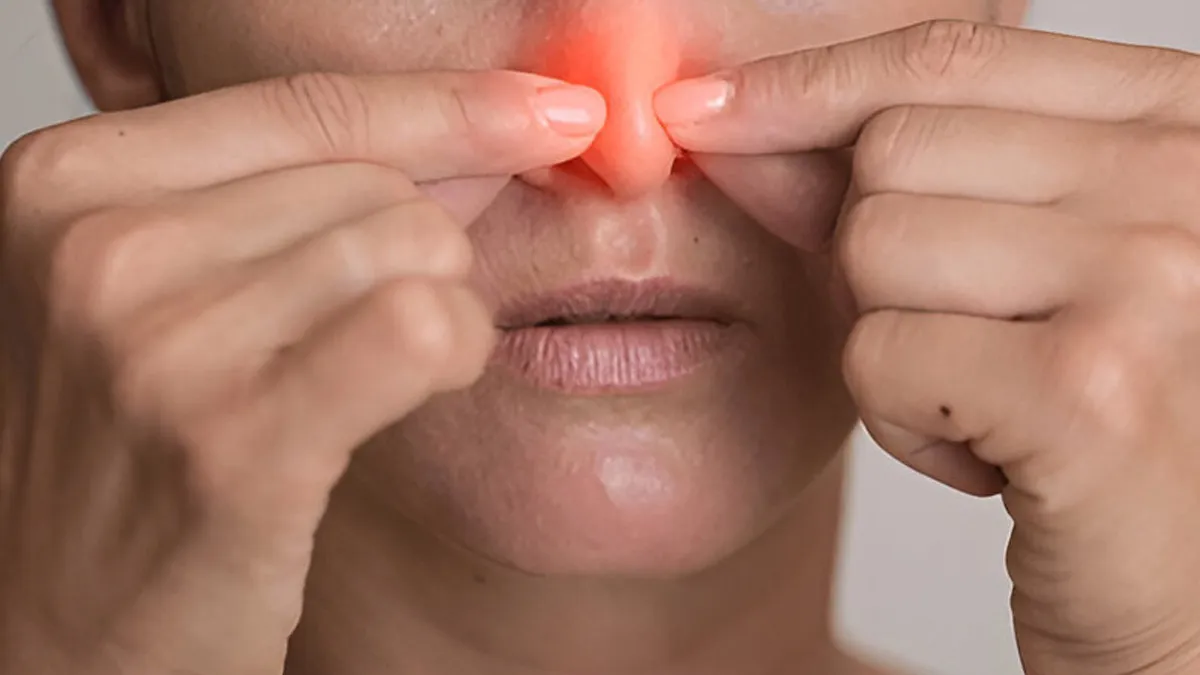
Getting a cold once or twice a few months is normal, but what about a persistently blocked nose that lingers for weeks and causes ongoing discomfort? It may be tempting to ignore, but persistent nasal congestion can be a sign of a more serious issue, such as nasal polyps.
Table of Content:-
We spoke to Dr Sundhari Venkateshwaran, MBBS, ENT/Otorhinolaryngology, Apollo Spectra Hospital, Chennai, who explained nasal polyps, their causes, symptoms, and treatment measures.
What Are Nasal Polyps?

“Nasal polyps are the signs of a soft and painless growth of the mucous membrane lining in the nasal cavity or sinuses. They appear as teardrop-shaped swellings that disrupt airflow, interfere with breathing, or lead to sinus infections,” said Dr Venkateshwaran.
They are often misdiagnosed as a common cold, with other symptoms being overlooked. Nasal polyps differ from nasal tumours and are not contagious.
Also Read: Struggling with Nasal Congestion? Learn the Right Way to Use a Nasal Spray for Relief
Causes of Nasal Polyps
Nasal polyps are caused by chronic inflammation and are associated with asthma, allergic rhinitis, or immune disorders. They are characterised by growths of soft, pale tissue that can be teardrop-shaped and contain fluid. Both genetic and environmental factors, such as pollution and tobacco smoke, contribute to the development of nasal polyps.
Individuals with a family history of chronic sinusitis or asthma, as well as those with Aspirin-Exacerbated Respiratory Disease (AERD), are more susceptible to developing nasal polyps.
Symptoms of Nasal Polyps

Identifying the underlying symptoms of nasal polyps is quite uncertain, as the most common symptom of a blocked nose makes it hard to distinguish between a common cold and nasal polyps.
“However, if cold is chronic and causes hindrance in breathing, loss of sense of smell (anosmia), or frequent sinus infections, it could be identified as nasal polyps. The common cold is resolved within a week, but nasal polyps persist for weeks or months, causing inconvenience in sustaining everyday chores,” added Dr Venkateshwaran.
Also Read: From Allergies to Asthma, These Conditions Can Trigger Nasal Polyps
Complications Of Nasal Polyps
If the prolonged disturbance is left untreated, the nasal polyps can grow large enough to block the nasal cavity, causing difficulty breathing, affecting sleep, and everyday functions. There is mucus build-up, growth of bacterial or fungal infections, causing chronic sinusitis. Asthma symptoms relating to breathing deteriorate, and there is an increase in risk of asthma attacks as well.
Treatment for Nasal Polyps
“By seeking help from medical professionals, treatments, such as corticosteroid nasal sprays, oral corticosteroids are implied to reduce inflammation and shrink the growth of polyps. Another promising treatment called dupilumab (monoclonal antibody) is polyps as well as recurrent sinusitis or symptoms relating to asthma,” said Dr Venkateshwaran.
According to StatPearls, nasal polyposis should be considered in individuals experiencing worsening nasal blockage, congestion in the nasal or facial area, runny nose, and reduced smell, which are key symptoms of Chronic Rhinosinusitis (CRS). It is important to inquire about any sensitivities to aspirin or Nonsteroidal Anti-Inflammatory Drugs (NSAIDs), as well as the presence of asthma, which is part of the Samter triad. Unilateral symptoms, along with a history of nosebleeds, chronic middle ear infections, or frequent bronchitis and pneumonia, should also prompt consideration of other potential causes.
Bottomline
Dr Venkateshwaran concluded, “Nasal polyps can be challenging to diagnose because their symptoms are similar to those of a common cold, making it difficult to distinguish between the two until the polyps become chronic. It's crucial not to ignore nasal obstructions, as untreated polyps can lead to serious respiratory complications.”
Timely diagnosis and proper treatment can effectively manage nasal polyps, allowing individuals to breathe more freely and comfortably. Remember, relief starts with recognition, and early treatment enables you to breathe freely, sleep soundly, and live fully.
[Disclaimer: This article contains information provided by an expert and is for informational purposes only. Hence, we advise you to consult your professional if you are dealing with any health issue to avoid complications.]
Also watch this video
How we keep this article up to date:
We work with experts and keep a close eye on the latest in health and wellness. Whenever there is a new research or helpful information, we update our articles with accurate and useful advice.
Current Version